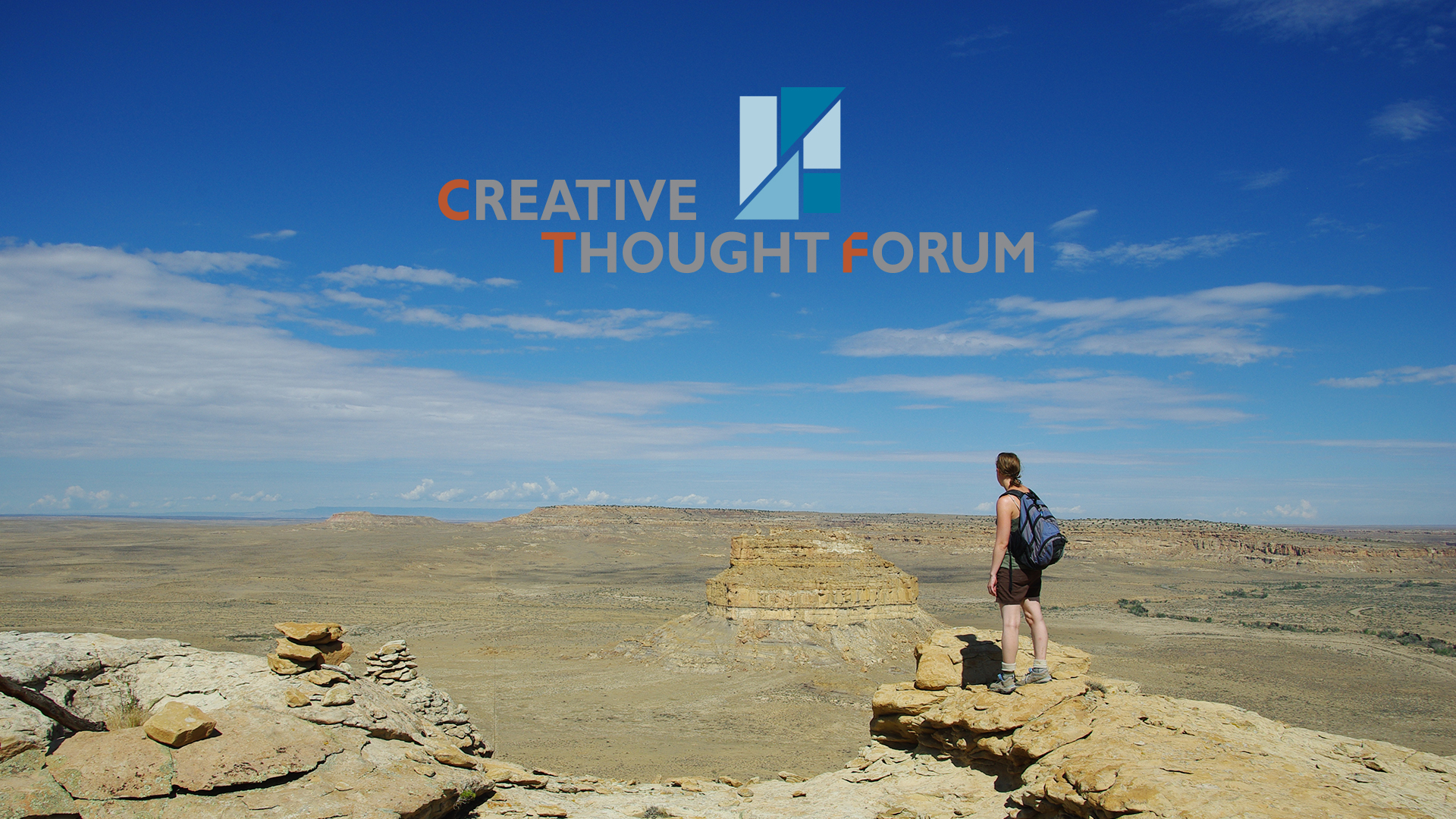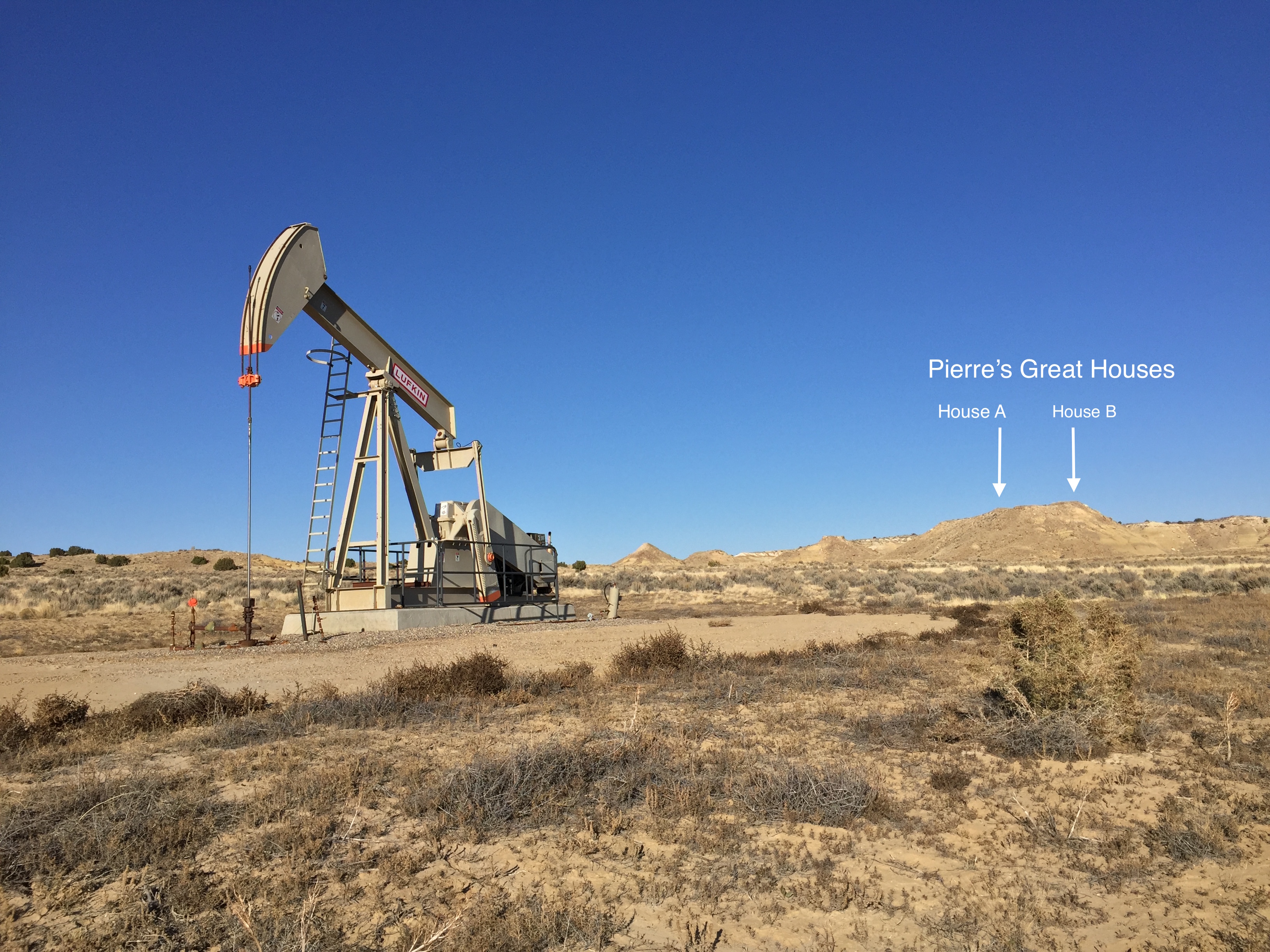Chaco Landscapes: Sensory and Political Engagements with Place

Chaco Canyon’s Fajada Overlook. Courtesy of Ruth Van Dyke.
The School for Advanced Research is pleased to announce the next event in our third annual Creative Thought Forum series
Chaco Landscapes: Sensory and Political Engagements with Place, a lecture by renowned archaeologist, Dr. Ruth Van Dyke (Thursday, February 13, 2020).
As this year’s Linda S. Cordell lecturer, Van Dyke will present on decades of research within the Chaco region and share her insights into past and present social, political, and sensorial relationships across the greater Chaco landscape. As she notes in a 2008 publication:
All humans know the world through bodily experience, so all humans share body-relational perceptions such as directionality and scale. The builders of monumental architecture intend for their work to be seen and experienced by others. As visitors walk within the canyon today, navigating park service trails through great house ruins, we catch partial glimpses of the Chacoan architects’ intentions. We are impressed with Pueblo Bonito’s massive, looming walls, exaggerated size, and rigid, repetitive formality. What sensory reactions were great houses originally designed to elicit? What beliefs about the world were they intended to convey? I investigate these questions and others, using a phenomenological approach.

Chaco Canyon’s Pierre’s Great Houses with oil pump jack in the foreground. Courtesy of Ruth Van Dyke.
With a growing presence of extractive industries encroaching on the spaces known as Chaco Canyon, Van Dyke sees the role of archaeologists as crucial to raising awareness about the importance of honoring and preserving the cultural site. In her talk, she will share insights on how archaeology can help illustrate the lived experiences of the ancient Puebloan people and how archaeologists are now working together with Native peoples to influence the public understanding of the sites in order to influence the outcome of current projects across the region.
Dr. Van Dyke is a professor of anthropology at New York’s Binghamton University. She is the director of archaeological field research at the Castro Colonies Living History Center and the author of several publications including The Chaco Experience: Landscape and Ideology at the Center Place (SAR Press 2008), and Practicing Materiality (2015).
This event is presented in partnership with the New Mexico Museum of Art and will be held at the St. Francis Auditorium. Event Details:
Lecture: Chaco Landscapes, Sensory and Political Engagements with Place
Speaker: archaeologist, Dr. Ruth Van Dyke
Date/Time: Thursday, February 13, 2020; 6:30 pm – 7:30 pm
Location: St. Francis Auditorium at the New Mexico Museum of Art; 107 Palace Avenue, Santa Fe, NM
Cost: $10 not-yet-members; Free for SAR members
Registration: sarsf.info/vandyke
The series continues into 2020 with Creative Thought Forum speakers examining trends in social sciences and related fields that address where we are headed in the realm of work. From advances in archaeology to the economics of equality, the series offers a broad look at how we move forward in a changing world.
2019 – 2020 Creative Thought Forum series schedule and details:
Turning the Lens: Brazil’s Kayapo Communities’ Use of the Warrior Image
Glenn Shepard / Thursday, March 26, 2020 / 6:30 P.M. / James A. Little Theater / Free for SAR members; $10 general admission / Register for this lecture
Glenn Shepard, an ethnobotanist and anthropologist, presents on work by Kayapo communities who use their warrior image and outside power symbols to combat—via film and new media approaches—the rise of mining and logging projects on Indigenous lands. Shepard is the ethnology curator at the Goeldi Museum in Belém do Pará, Brazil.
What It Takes to Solve America’s IT Skills Gap
Ankur Gopal / Thursday, April 9, 2020 / 6:30 P.M. / James A. Little Theater / Free for SAR members; $10 general admission / Register for this lecture
Ankur Gopal is the founder of Interapt, an award-winning IT services firm that implements innovative technologies and develops IT workforce training. Interapt’s IT apprenticeship models are being implemented across the nation. Their team is now leading a ten-year plan to help Kentuckians build a sustainable technology ecosystem. His talk explores how families traditionally linked to coal-mining culture are grappling with the need for changing skills in the twenty-first century and the impact of economic inequality on access to training and education.
Annual President’s Lecture
Why Things Are the Way They Are
Robert Krulwich / Presented in partnership with Creative Santa Fe / Thursday, May 28, 2020 / 6:30 P.M. / Lensic Performing Arts Center / Special pricing applies / Register at Lensic.org / tickets on sale starting January 28
Co-host of NPR’s Radiolab, Robert Krulwich is one of the most original and widely listened to broadcasters in the world. His series, Radiolab, explores “big ideas” and the mysteries of science and life through visceral storytelling. In his talk, Krulwich draws from decades of experience as a special correspondent for ABC News; his regular contributions to Nightline, ABC News Tonight, and Good Morning America; and his role as host and executive editor of PBS’s documentary series NOVA scienceNOW to share insights on where technology can take us and why communities trust the sources they do when it comes to information about potential futures.
Each Creative Thought Forum talk is followed by a speaker-led salon discussion the morning after the lecture. Hosted at SAR, the salons are free to SAR members and offer lively face-to-face engagement with these influential writers and scholars. Advanced registration is required for the salons and encouraged for the lectures.
For interview requests and high-resolution images, contact Meredith Schweitzer at schweitzer@sarsf.org or 505-954-7223.
About the School for Advanced Research (SAR): Founded in 1907, the School for Advanced Research (SAR) is one of North America’s preeminent independent institutes for the study of anthropology, related social sciences, and humanities. SAR is home to the Indian Arts Research Center, one of the nation’s most important Southwest Native American art research collections. Through prestigious scholar residency and artist fellowship programs, public programs, and SAR Press, SAR advances intellectual inquiry in order to better understand humankind in an increasingly global and interconnected world. Additional information on the work of our resident scholars and Native American artists is available on the SAR website, www.sarweb.org; on Facebook, facebook.com/schoolforadvancedresearch.org/; on Twitter, @schadvresearch; and on Instagram @schoolforadvancedresearch.